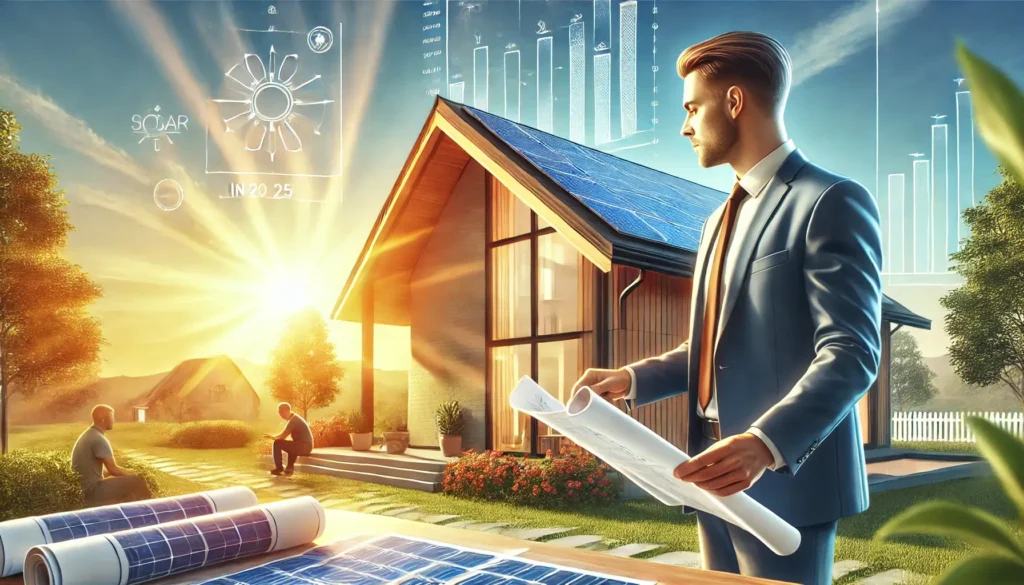New Solar Rules May Be Coming: What Homeowners Should Know Before Installing in 2025
If you’re considering solar energy for your home, now may be one of the most important times to act. Across the U.S., policymakers are debating new regulations that could significantly affect how much you save—and how easily you can access incentives—in the coming years. While 2025 still offers strong financial advantages, proposed changes are adding a layer of urgency for homeowners on the fence.
Let’s break down what’s changing, what it means for you, and how to make the most of the current landscape.
🔹 1. Policy Shifts on the Horizon
Several solar-related policies are under review at both the state and federal levels:
- Net Metering Under Fire: States like California and Florida are adjusting or planning to adjust their net metering policies, which determine how much homeowners are paid for excess energy sent back to the grid. These changes often reduce compensation rates, meaning future solar adopters could earn less than those who go solar now.
- Federal Incentives in the Spotlight: Lawmakers in Washington are debating potential changes to the 30% Residential Clean Energy Credit. Some proposals, including a 2025 House Republican tax plan, would reduce or eliminate this incentive after this year. Additionally, there’s uncertainty around the future of the 10% Domestic Content Bonus, which rewards systems using U.S.-made components.
- Building Code Updates: New energy efficiency standards and solar-ready building codes are under discussion in multiple states. These could affect system sizing, panel placement, and even roofing requirements—potentially adding complexity or cost if not planned in advance.
🔹 2. What This Means for Homeowners
If you’re waiting to “see what happens” before going solar, here’s what you risk:
- 🕒 Losing Access to the Full 30% Federal Tax Credit: If policies change or phase out, you may not be eligible for the same financial relief as those who install in 2025.
- ⚡ Reduced Net Metering Benefits: Many utilities are moving toward less generous net metering terms. If you don’t act soon, your system might be compensated at a lower rate for surplus energy.
- 🚧 Delays Due to High Demand: When policy deadlines approach, installation demand spikes—leading to contractor backlogs, slower permit approvals, and potentially higher prices due to equipment shortages.
🔹 3. Why 2025 Is Still a Smart Window
Despite the uncertainty, 2025 remains a golden opportunity for solar adoption:
- ✅ The 30% Federal Tax Credit is still fully active and can be combined with local incentives for even more savings.
- 🏷️ Some states offer added rebates or performance-based incentives for early adopters who install before rules change.
- 📉 Solar panel prices remain steady, but increased demand, future tariffs, or raw material inflation could cause price hikes.
In short: acting now means maximizing your savings while minimizing red tape.
🔹 4. Action Plan to Get Ahead of the Curve
Here’s how to make sure you’re protected, no matter how policies evolve:
- Request a free solar quote now to understand your options.
- Start the installation process so you can lock in current incentives and net metering policies—many utilities “grandfather” customers under older, more favorable terms.
- Ask about U.S.-made panels and equipment to qualify for the 10% domestic-content bonus credit.
- Plan ahead for roofing upgrades or battery additions if you expect to need them soon.
✅ Final Thoughts: Secure Your Solar Benefits While You Still Can
With strong incentives still in place—but potential changes looming—it’s clear that 2025 could be the most strategic year to go solar. Acting now helps you avoid policy uncertainty, maximize your financial return, and ensure your system is installed and approved before any new rules take effect.
💬 Want expert help navigating this shifting solar landscape?
Contact us today for a free consultation, and we’ll walk you through your options to ensure you get the most value before any new policies go live.
Ready to make the switch?
Contact us today to learn how solar panels can help you save more in the long run!
Complete Residential Solar Panels and Systems. Serving Texas, Oklahoma, Kansas, Missouri, Utah, Florida & Ohio
Get a Free Quote Now
